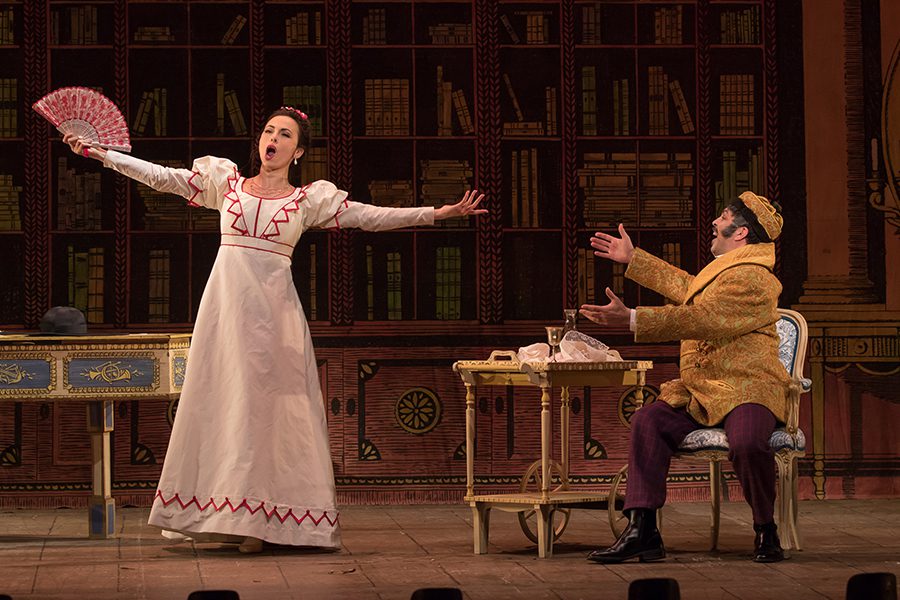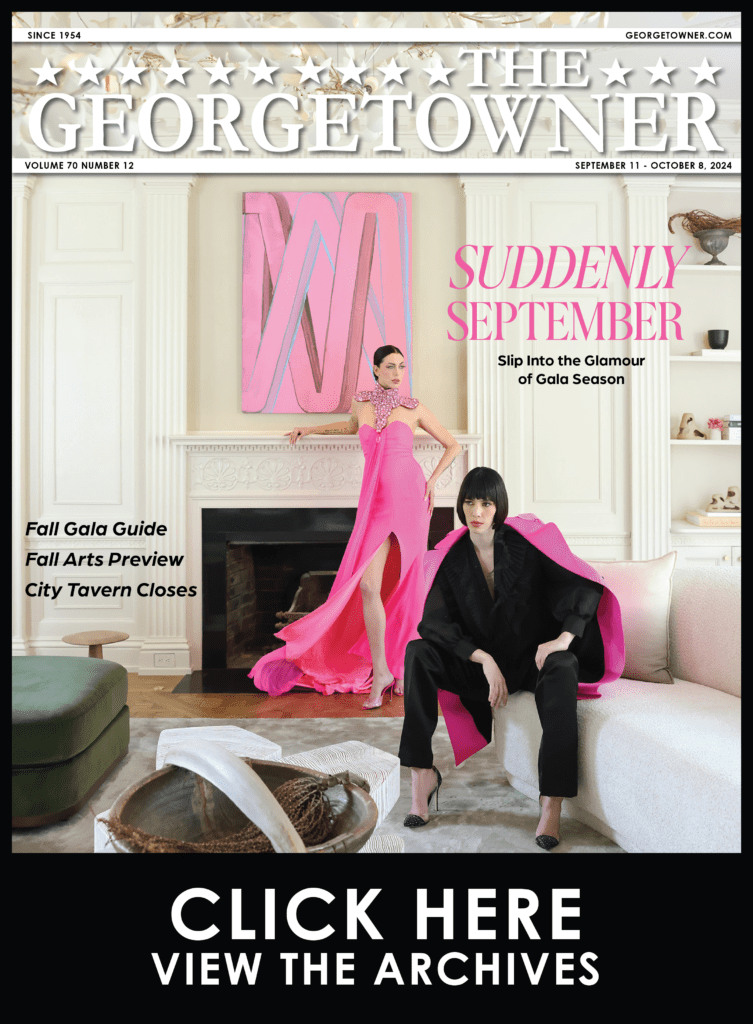An Entertaining ‘Barber’ from WNO
By • May 1, 2018 0 639

Surprisingly, there are quite a few operas in the canon that are described by both critics and aficionados as operas for people who don’t like [or despise] opera — “Carmen,” “Madame Butterfly” and even Mozart’s “The Marriage of Figaro,” among them.
Add Rossini’s “The Barber of Seville” to that list, only more so. In this case, if you’ve never, ever been to an opera performance, you should absolutely go to Washington National Opera’s production of “The Barber of Seville,” at the Kennedy Center Opera House through May 19.
Why? Because the performance feeds humanity’s often desperate craving to be entertained in a multitude of ways. We yearn to laugh out loud, be amazed and amused. We like to guffaw at pratfalls, the moment when a disguise works and the moment when it doesn’t. We like witty comedy but also low, slapstick comedy. We like entertainment that is, well, entertaining. If you like silent-movie clowns, for instance, you’ll love the performers in this “Barber,” even though they’re constantly singing, often in the rapido form and sound of somebody doing the musical form of whitewater rafting.
Might as well post a barker outside the Kennedy Center who doubles as a cab hailer, whispering, “Hey, wanna have a good time?”
I don’t mean to suggest that the production is somehow a form of carnival or circus act (although there are, plot-wise and otherwise, improbabilities and impossibilities galore at work here). Nor does the production somehow fail to address the enjoyment and requirements of an opera for opera buffs, because Rossini’s score, while almost instantly recognizable at various points, is beautifully performed by a cast packed with terrific singers, most notably Russian tenor Andrey Zhilikhovsky, as the aforementioned Barber of Seville, aka Figaro, a note-hitter of note, working at top speed and energy, and mezzo-soprano Isabel Leonard as Rosina, the object of so much attention that it could make your (and her) head spin. Ah, Figaro, Figaro, ah, even more, almost anything Leonard sings, as in the aria, “Una voce poco fa.”
But both Zhilikhovsky and Leonard exemplify other gifts — in his case, a smooth charisma punctuated by edgy style, and in Leonard’s case, a gift for movement and pace, in a production where the stage is often as tricky to maneuver in as a roller-skating rink, where decorum and allure are clung to as if a storm were in progress.
This is the case for just about everyone in the cast. They are, to be sure, fine singers when given the opportunity, but also excellent comic actors. Taylor Stayton, for example, as the rich Count Almaviva, who dons at least three disguises (doctor, soldier and priest-music teacher); Paolo Bordogna as the boorish, scheming Dr. Bartolo, who brings a kind of Goofy-goofiness to a man who has a loose grasp on his arrogance; and the sighing but vocally high-flying Alexandria Shiner as Berta all perform memorably.
The whole proceedings are moved spritely along by director Peter Kazaras and musically by Emily Senturia who conducts, getting things started with the pleasure-inducing overture.
All of this is of course done in a plot that’s in the service of true love requited, romance ignited and sometimes united, done in the misguided but time-honored manner of farce. The music, I think, is more than satisfactory to opera buffs, not excluding the less initiated, many of whom were laughing out loud (although some, no doubt, hoping for edgier fare, might not have been included in the judgment that a good time was had by all).
But in times like these, don’t we need, no, don’t we deserve a good time?
At the end of the first act, there comes a time when the scheming and outraged Dr. Bartolo says he’s having the underminers of his heart’s desire arrested by the police.
Sure enough, two soldiers march sharply through an entrance door already much abused by pounded and kicking. And then, two more show up, and more and more and more, all dressed up like the combatants in “The Nutcracker.” And still more come until the audience is starting to convulse in laughter, while the parade of red-and-white, cross-striped soldiers in parade-ground drill formation answer the question of how many soldiers can you squeeze on an opera house stage. More than you might imagine.
Now that’s entertainment.

